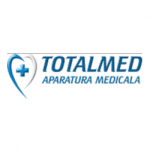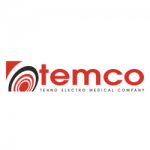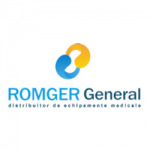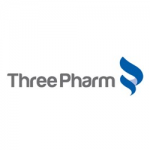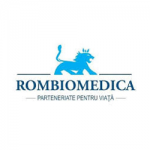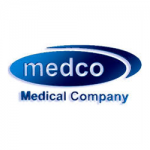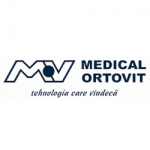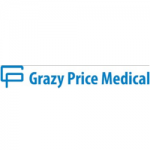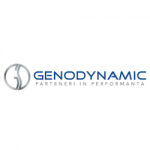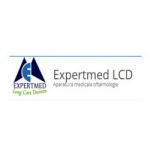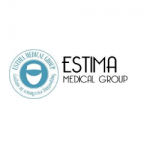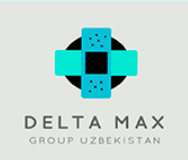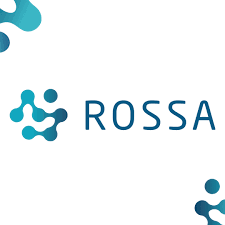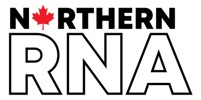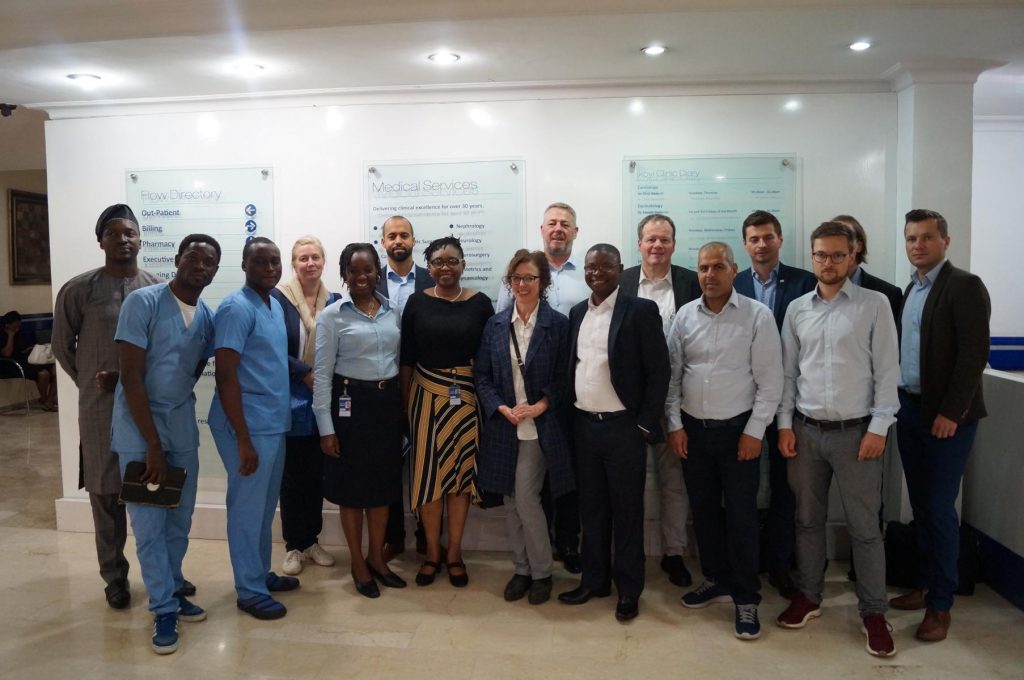
Greatly inspired by a very succesful delegation trip to Nigeria in June 2019, our CEO Philip Okito wrote this afro-optimistic and very comprehensive article about the potential of the Nigerian healthcare market. When you have finished reading this article, you will know:
- how foreign healthcare companies can contribute to the development of the Nigerian healthcare infrastructure.
- about the potential of the Nigerian health market.
- about specific projects and product demands.
- how to build strong business relations with Nigerian companies.
- how Nigeria is dealing with the Covid 19 pandemic and which, actually positive, impact is has on their health market.
Enjoy the read!
Introduction
“The next four years will be the healthcare years of Nigeria!”
said Anthony Abou Nader in June 2019 at the healthcare symposium in Abuja. Mr. Nader is the CEO of Tanit Medical Engineering, a medical equipment distributor that has been successfully active in Nigeria for several years. With his statement he was addressing a German delegation of medical technology manufacturers that seek to enter the Nigerian Market.
Nigeria and its healthcare market have huge growth potential but it also faces tremendous difficulties. A change of the local healthcare system is needed and it has to come through commitment from the public sector, contribution from the private sector and collaboration with foreign healthcare companies.
Added to this is the current issue of the Covid 19 pandemic, which is still firmly in control of the world at the end of 2020 and whose consequences are being felt everywhere, not least in the economic performance of practically all countries worldwide. Nigeria’s development is also being negatively affected by the pandemic, for example, GDP is forecast to fall by around 3.4%. The impact on the development opportunities for the health sector is currently difficult to determine. This blog article summarizes the trends prior to the Covid 19 pandemic in the summer of 2019 and attempts to incorporate the current state of affairs in the best possible way.
Within this project we advised and supported eight German healthcare companies to establish business relations with Nigerian business partners. In this article we will summarize the insights we gained throughout the past 12 months of the project and future developments.
Nigeria, Africa’s emerging giant still suffers of growing pains
Nigeria is the biggest black population in the world with approximately 200 Mio. people. Today, every 6th African is Nigerian. The growth rate of the Nigerian population is tremendous with more than 5 Mio. people adding yearly. According to the United Nations the population of Nigeria will double and reach 400 Mio. by 2050. Nigeria is not only the biggest population of Africa, but also the biggest economy and this is mostly due to its strong oil and gas sector. Nigeria is already among the world’s top 20 oil & gas producers today and among the top 10 worldwide in reserves.
The growing population and economy makes Nigeria not only an attractive consumer market but also an attractive healthcare market, with a growing demand for medical services.
Here are some of the challenges that Nigeria faces:
• Increased heart disease, diabetes and cancer due to adoption of western lifestyle, especially in bigger Cities like Lagos, Kano and Ibadan
• Child mortality rate is among the highest worldwide with 1 out of 5 children dying before the age of five.
• Maternal death: Nigeria is statistically one of the last countries worldwide with 1 out of 13 women dying while giving birth.
The demand for healthcare services in Nigeria is high and will increase with the growth of the population. Unfortunately this rising demand cannot be covered by Nigeria’s weak healthcare system today:
• There are currently 3,500 hospitals in Nigeria with 70% being privately owned. Nigeria’s shocking 0.8 beds per 1,000 inhabitants compares poorly to 8 beds per 1,000 inhabitants in Germany.
• Although Nigeria has well educated and trained physicians, the total amount of medical professionals such as doctors, nurses and midwives is too low to provide sufficient services to its growing population (0.4 doctors per 1,000 inhabitants). Especially in rural areas the coverage of medical services is very thin. These statistics are even worsened by a growing amount of specialists migrating abroad causing a major brain drain effect.
• Less than 10% of Nigeria’s population is insured and therefore 2/3 of the costs for medical services are paid by the patients. Unfortunately, most often only the high-income population is able to afford medical treatment. This is a major topic that the public sector wants to tackle with its vision to insure 100% of the population by 2020.
From today’s perspective, this goal seems unrealistic; however, until this ambitious goal is achieved most potential patients come from the high-income population. Their trust in the local healthcare system is low and they seek treatment abroad. That’s why yearly over 30,000 Nigerians travel abroad for treatments such as open heart surgeries, renal transplants, brain surgeries, cancer and eye treatment. The travel destinations are western countries like the US, UK and Germany but also emerging markets like UAE, South Africa and India, where treatment is cheaper. An estimated $1.35 billion is spent on these therapies yearly. Nigeria’s losses to medical tourism thus mount up to more than its total health budget 2018.
It may seem paradoxical at first glance, but the Covid 19 pandemic could have a positive impact on Nigeria’s health system. Germany Trade and Invest, for instance, explains that the corona crisis could lead to a rethink in the industry and to increased investment in the health sector. This is due to the fact that it is currently not possible to travel abroad to receive medical services and that the country’s middle and upper classes are also dependent on national health care. According to this, however, an increase in private investment and private health expenditure is considered likely.
Fortunately, it can be said at this stage that the Covid 19 pandemic has not yet hit Nigeria too hard. At the beginning of November, around 63,000 infections and 1147 deaths were recorded. GTAI experts explain, however, that this low number is rather due to the limited availability of test kits. The estimated number of unreported cases will most likely be significantly higher. The economic consequences are much worse. The drop in oil prices, which has been exacerbated by the global lack of demand, is affecting the country’s economy. The country’s total industrial production is expected to fall by 9.5% in 2020. In the service sector, the decline is estimated at around 3.5%. It is important to monitor further developments closely.
Vision: Nigeria should turn its health problem into a health asset and become the medical hub for the West African region
In his speech in Abuja, the honorable Prof. Onyia said
“Instead of losing over $1 billion yearly to medical tourism, Nigeria should invest in the local healthcare infrastructure and treat its people themselves. But let’s not stay there; Nigeria should be the medical hub for the whole West African region.”
Prof. Onyia, is the advisor for the Office of the Vice President and Minister for Power, Works and Housing and therefore strongly linked to the federal government.
During this speech, Prof. Onyia had no idea of the upcoming Covid 19 pandemic in 2020 and the resulting weakening of the economy. Nevertheless, the pandemic offers some potential for the Nigerian health system, as no one can leave the country for medical services due to travel restrictions. As already mentioned, the experts from Germany Trade and Invest expect that a rethink could take place, leading to increased private investment and health spending. It remains to be seen to what extent this forecast is correct. The further development of the pandemic worldwide will be decisive.
This vision of Nigeria being the medical hub for West Africa could be a driver for investments in the healthcare sector. Multiple projects were already launched by the public sector to tackle this opportunity and more are in the pipeline.
Here are two interesting public projects:
• Dr. Umuzuruike the commissioner of Health of Ebonyi State attended the conference with the German delegation. He informed us that Ebonyi state is building a teaching hospital and that they seek equipment and hospital management from Germany.
• A similar project is the Enugu Diagnostic Center, a promising project that was launched several years ago as a flagship project in the southeast region of Nigeria. For example the newly built centre in Enugu state will be equipped with state-of-the-art MRI CT and X-Ray units and a renal dialysis unit. On behalf of the invitation of the Governor of Enugu, trAIDe visited Enugu and inspected the Diagnostic Center. They are also looking for German equipment and hospital management.
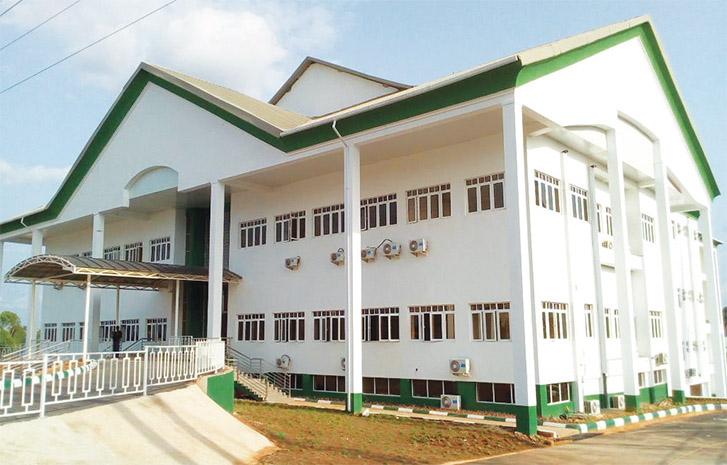
Although Nigeria’s government has strengthened the vision of improving the healthcare sector by increasing the number of projects and their total investments, unfortunately, public projects are often not realized. There are several reasons for that. Many times it is a lack of detailed planning and execution. I have seen healthcare projects in Nigeria being launched without a business plan, a construction plan or any idea on how to actually manage and operate the hospital. Another factor contributing to the low implementation rate of public healthcare projects is the immense problem of corruption. As in many countries, corruption is considerably higher amongst public projects compared to private investment projects.
The private sector has also caught on to the opportunity in the healthcare market, but seems to be executing far more effectively.
Here are two interesting private healthcare projects:
- When we travelled to Lagos, we visited Lagoon hospitals, one of the biggest healthcare hospital chains in Nigeria. The hospital chain operates 6 hospitals in Lagos alone and treats more than 270.000 patients per year. This makes Lagoon Hospitals the largest healthcare service Group in Nigeria. Dr Olujimi Coker, Chief Medical Director & Chief of Surgery told the delegation about Lagoon hospital expansion plans. “The demand for medical services is high and we plan to deliver high quality medical services. That’s why we are planning to invest and to expand our current capacity of beds.” Lagoon hospitals has 32 years of experience in managing hospitals and is the only Hospital in Nigeria that is accredited by the Joint Commission International.
- A joint venture project between the public and private sector is called “FIT Healthcare”. In order to follow the vision of providing healthcare services to Nigeria and preventing Nigerians from traveling abroad for treatment, the local state government of Enugu plans to build Nigeria’s first health tourism district. Enugu in Southeast Nigeria was carefully selected to be the project location, since it can be easily reached from all directions of Nigeria via the Enugu international airport. The airport hosts Ethopian Airlines flights and will soon expand with the Air Peace international hub. The City of Enugu is also amongst the top three in real estate value appreciation of cities in Nigeria. I met the executive director of FIT Healthcare Ltd., Uche Okoli, in Lagos. He explained that the joint venture aims at building a health district as a response to the Nigerians’ question of where to get treatment for medical problems. The vision is not only a world class hospital with 250 beds, but also to have it be surrounded by a shopping mall, a hotel, offices and residences. By delivering high quality medical services in a lifestyle location some percentages of the medical tourism expenses will be retained within the country. Mr. Okoli stressed that in order to achieve this, they are looking for collaboration with Germany. There is a high interest for medical equipment and hospital management services from Germany.
The interest from the Nigerian side is obviously high, so I would like to provide some insights on how to start matching the demand.
Nigeria’s need for foreign support offers large potential for healthcare companies
The country is so big, the healthcare system so poor and the opportunities so many. Now what should you focus on, the private or the public sector? And what are the healthcare sub-sectors with the biggest potential in the future?
Here are some recommendations and our top findings that we have gathered in this project:
Private vs. public sector? As mentioned above, both sectors are very active in the healthcare market with ambitious goals. What speaks for the public sector? It is the duty of the public sector to provide healthcare services for the inhabitants. And with Nigeria being among the richest countries in Africa, there should be a potential for healthcare turnaround in Nigeria. Unfortunately, there are too many hurdles in the way for the public sector to effectively execute the change process. Among them are lack of planning and execution of projects, lack of know how in running hospitals effectively and too much corruption. The private sector on the other hand also faces these difficulties but seems to be far more effective in handling them. Local and foreign investors such as Hygeia have successfully implemented major healthcare projects such as lagoon hospitals. There just seems to be a different commitment from the stakeholders to execute the project effectively behind private investments projects. Our recommendation is to focus on doing business with the private sector or to consider your involvement in PPP projects.
Areas with big growth potential
These medical devices/disposables are in high demand:
- Diagnostic Equipment – particularly the radiological and imaging devices (Magnetic Resonance Imaging (MRI), Computed Tomography scan (CT), Digital X-Ray, Ultrasound, Mammography and Ultrasound Scans)
- Medical disposables, especially those for testing for malaria parasites, drug abuse, and infectious diseases such as HIV/AIDS and tuberculosis
- Primary Care Devices e.g. Ventilators, point of care (POC) tools, furniture
- Laboratory Equipment
Investment in local facilities or specific medical tourism projects:
- There is a big demand for specialized health care such as treatments for cancer, laser surgery, cosmetic surgery, kidney transplant, neuro and cardio health support
- Co-operations between local hospitals and specialized European hospitals such as orthopedics and kidney transplants or even cosmetic surgery. Most of the health tourists fly to India to get treatment. Treatment in Europe can be attractive because of the logistic advantages
E-Health and Telemedicine:
- This is clearly lacking in many public health facilities. A lot of health care service providers still operate manually. Digital hospital management systems are needed
- Due to the poor coverage of healthcare services especially in rural areas there is a high demand for services such as telemedicine or telecardiology
- Financial services for the healthcare system
- For Nigerian companies such as hospitals or medical distributors it is very costly to finance the equipment. Double digit interest rates are a standard, sometimes going as high as 25%. Even though there are some European development banks that offer financial services with lower interest rates, the loans start at a minimum amount of 5 Mio. €
- Financial services that give out loans for medical investments starting from 50.000€ and with a single digit interest rate are in high demand
Used medical equipment:
- The reputation for used medical equipment is not very good in Nigeria because the lifespan of used equipment is often poor. If used equipment providers can ensure the quality of their used equipment and/ or give out warranties, there is a huge market in Nigeria.
Nigeria has an enormous growth potential – especially within the healthcare sector. Demand is high, public and private investments are starting to tackle existing challenges. Furthermore, private investment could experience growth due to the Covid 19 pandemic and the associated travel restrictions. The government’s vision is to give the population a healthcare perspective and the health tourists a local healthcare alternative. Nigeria needs foreign healthcare partners who want to contribute and profit from the vast opportunities. In order for foreign companies to initiate and make sustainable business in Nigeria they have to be somehow present. Present either through own subsidiaries or through local distributors or partners. In our past articles “How to find the right business partner in Nigeria” and “10 tips on how to find the right business partner in Nigeria” we explain how you can screen and find the right business partner and kickstart your market entry to Nigeria.
With one smiling and one crying eye we want to announce that this was the last blogpost about the Nigerian health market and we will move on to a new “Country of the season”.
But we have a special gift for you! We have summarized all the information we have gathered within our projects and during our series on one compact document! There you will find SWOTs about Nigeria and the Nigerian health market, facts about medical tourism and future visions, the business culture in Nigeria, possible forms of market entry, practical tips for business partner identification, and financing and product registration.
Are you interested in entering the Nigerian healthcare market or another promising market in Africa?
Then we have good news for you! We have been accredited by the Federal Ministry for Economic Affairs and Climate Action as Africa-Consultant. You can apply for a consulting voucher and get 75% of your costs funded. Click on the button to learn all the details about this great offer: Consultation Voucher for Africa – Secure 75% funding!


